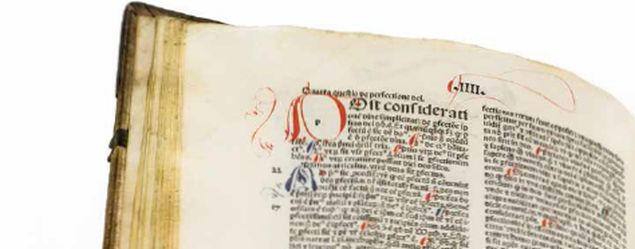
Commentaries on the Exhibit’s Works
Files
Download Commentary (189 KB)
Description
A brief commentary prepared by Bobbi Sutherland, PhD, Assistant Professor, History, on the following work:
Hippocrates
Octoginta volumina (The Hippocratic Corpus)
Rome, 1525; first edition of the first complete Latin edition
Permission Statement
This item and all others in the Imprints and Impressions collection are licensed for research, educational and private use. Proper attribution must be used when downloading or reproducing this content. If you wish to use the materials for other purposes, please contact University of Dayton Libraries to obtain permission: 937-229-4221.
Contents of Streaming Media
Bobbi Sutherland, assistant professor of history, explains Hippocrates’s four humors and the contemporary use of Hippocratic ideas in our everyday understandings of food, medicine, and health.




Comments
Hippocrates is rightfully called “the father of medicine.” Born around 460 BC into a world where illness was viewed as supernatural rather than natural, he instead approached medicine in the same way scholars approached philosophy and history: He put it on a rational footing. Hippocrates argued that diseases had natural, material causes; that the body and its ailments must be understood holistically; and that the doctor must treat the patient rather than the illness.This Octoginta volumina is a first-edition printing of Hippocrates’s work translated from Greek into Latin by Marcus Fabius Calvus; work by editors and translators such as Calvus contributed to a “rediscovering” of great works of antiquity, and the invention of the printing press brought about their wider dissemination.